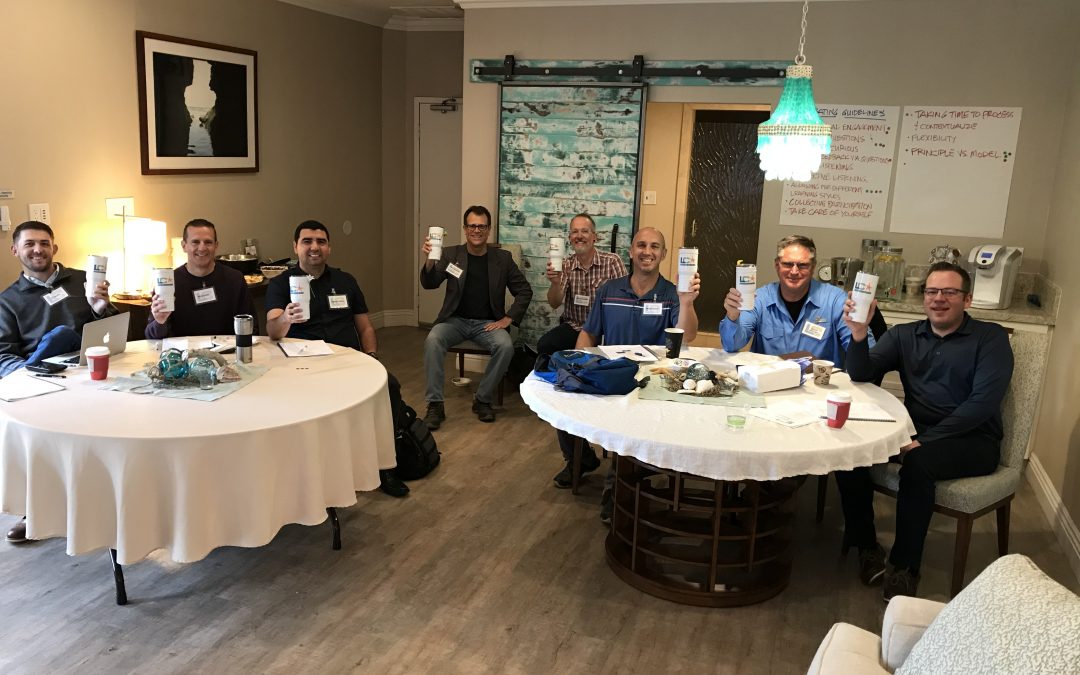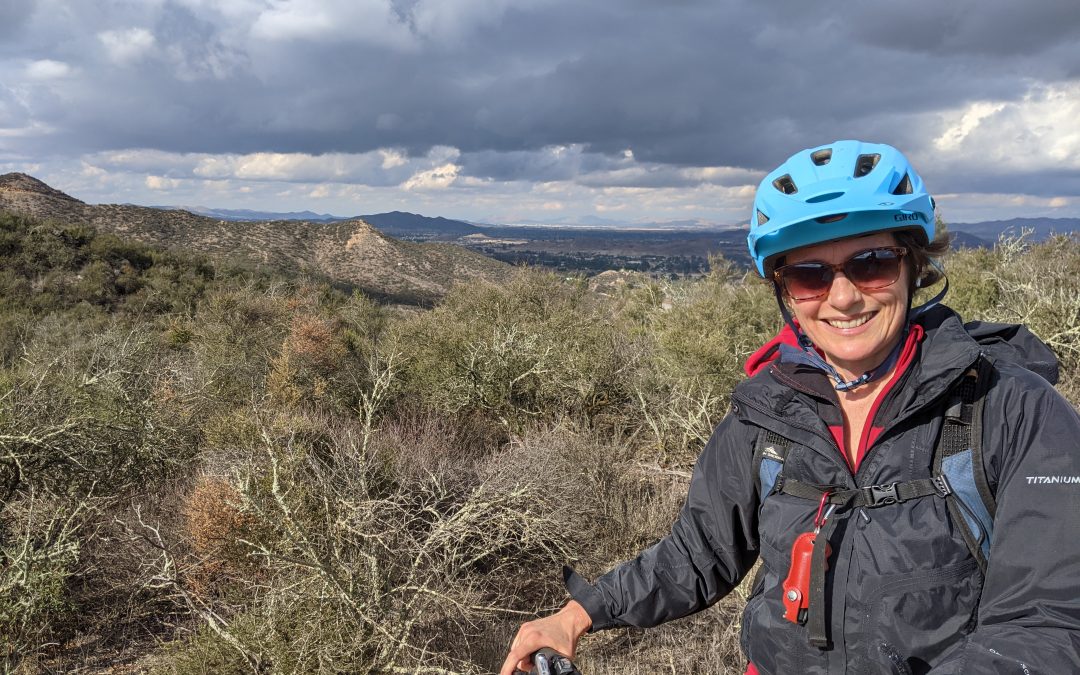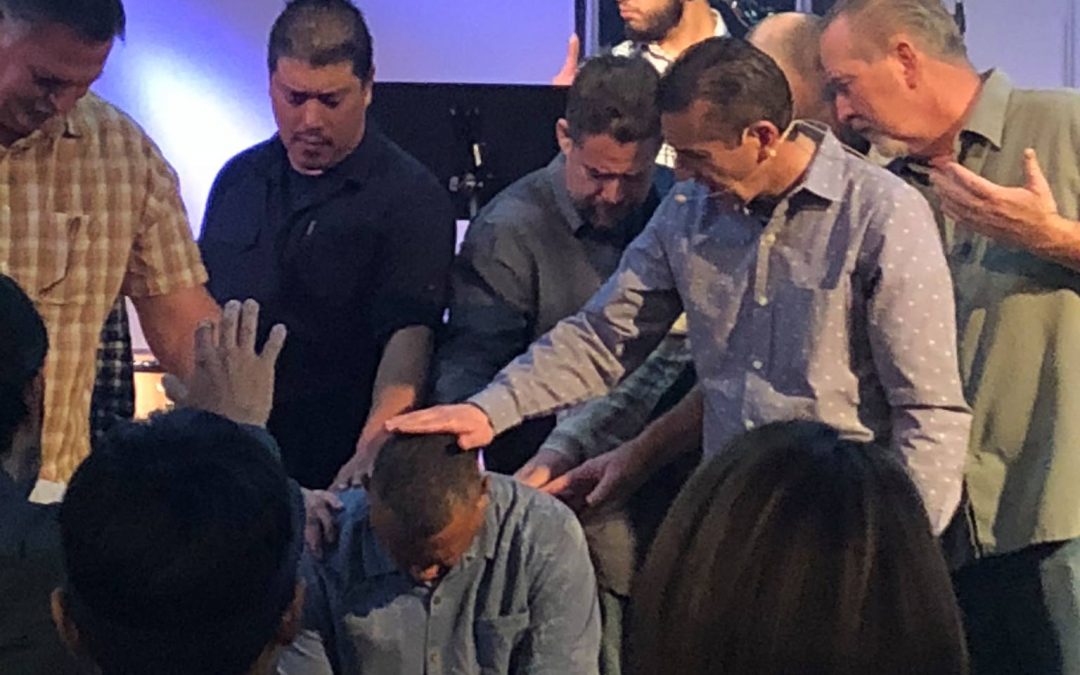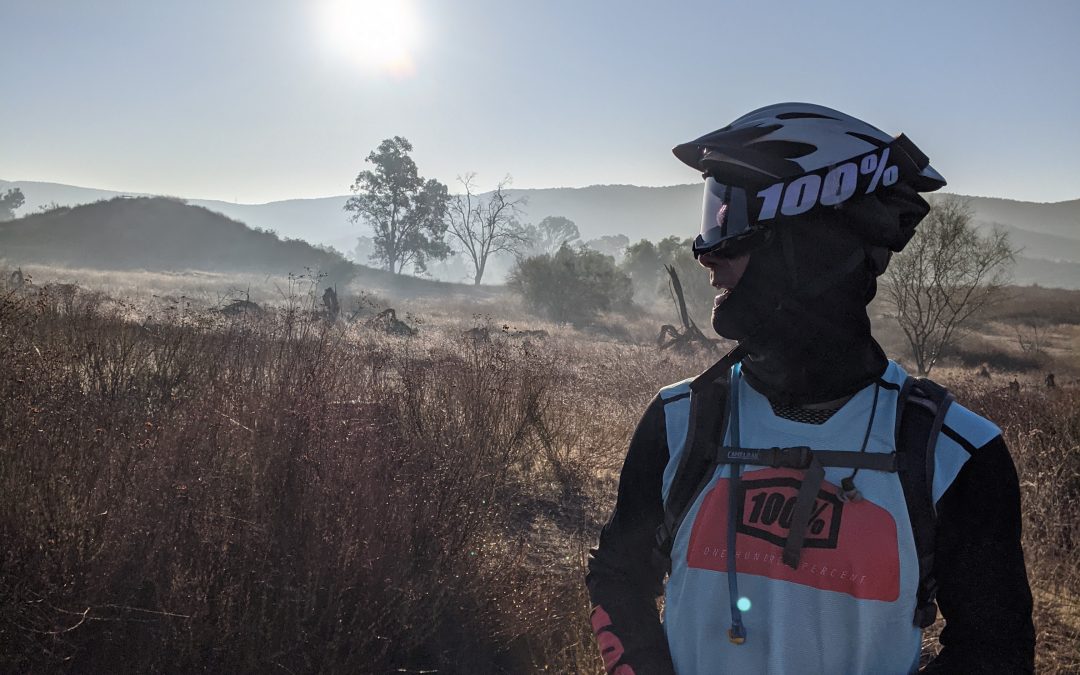


Where do you find inspiration?
Right now, you and I must be creative in our efforts to discover inspiration.
If you listen to the typical news report, read the latest updates on what is going on in the world and allow your mind to focus on reasons to be fearful – those messages can be less than motivational. It can be downright depressing. Or in my darker moments, they just feel evil.
Today I want to ask this question: Where do you find inspiration?
You might be in the throws of finding the right path to navigate complex issues of ministry. For instance, now that you have “righted” the ship and are discovering how to conduct a hybrid ministry; you might be asking yourself how long will this last. Of course, no one knows the answer to this question. Theologically you hold to the inspiration found in Jesus’s ministry, the Psalms and the writing’s of the Apostle Paul. In the moments when all odds stand against you, your leadership and even your family – the Word is our source of inspiration.
AND in the midst of challenges it is essential that you grab onto sources of inspiration that force you to see God in a new ways. One way I find inspiration is through mountain biking. It provides a needed distraction, forcing me to consider life and ministry from a fresh perspective. I enjoy riding with my wife. Mountain biking provides companionship with Gina, breathing life into my weary soul and tired body. Afterwards, I see things differently. It puts events into it’s proper perspective. Inevitably, I discover a new insight I did not have before the ride. Most important is the gratitude I feel when I realize how big God is and how small our world is and my place in it!
Where do you find inspiration?
In the next month we are launching three Leadership Collectives. One of the take-aways for leaders that experience the Leadership Collectives is the inspiration they receive throughout the process. Please look there over and if you have anyone in your network that might benefit – share it!
Leadership Collective
Leadership Collective for Multi-Ethnic Leaders
Leadership Collective for Parent Church Leaders

Multi-Ethnic Ministry Question #3: What is your leadership development strategy?
This third question is important! In a very pragmatic way, this question will determine your true intent. Let’s review those questions again:
- What is your “why”?
- How will you create a culture of diversity?
- What is your leadership development strategy?
Let me explain the statement I made above – this question will determine your true intent.
If you are serious about having leaders who are from diverse ethnic backgrounds:
- you will make disciples who navigate the challenges associated with crossing ethnic boundaries in your community
- you will attract emerging leaders of diverse ethnic backgrounds
- you will plant multi-ethnic churches
Each of these deserves an entire blog series. However, if you are curious and interested in taking the next step to either plant or develop multi-ethnic ministry in an established church, I would like to invite you to an upcoming event. Let me reiterate – my intent is to challenge church leaders to consider a the strategic missiological teaching on the phrase – make disciples of all the nations (panta ta ethne). I am expanding on this strategy and contextualizing it to the church in the West.
FB LIVE Event: Leadership Makeover for Multi-Ethnic Church Leaders – Tuesday January 19 @ 9am PST/Noon EST
FB LIVE Multi-Cultural Ministry
I am collaborating with Russ Siders to discuss some of his learnings from 20+ years of multi-ethnic ministry in a FaceBook LIVE event on Tuesday, January 19, 2021 @ 9am PST/noon EST. We will build on some of the information shared here. Hope you can join us!
To go to the InFocus Ministries Facebook page – CLICK HERE.

Multi-Ethnic Ministry Question #2: How will you create a culture of diversity?
For Christmas my two young-adult children gifted me with some mountain biking gear (see image above). Little did I know how dramatic the goggles would improve my technique. I have been riding for 25+ years. Over that time, I’ve sharpened my skills trying new approaches. But when I wore my goggles something fundamentally changed. One of the habits I’ve had is the tendency to look down at every nook and crevice that I ride over! With the new goggles (my first pair ever – to be exact) the frame on the lower edge does not allow me to look down; I am forced to look ahead. Guess what? My “Strava” (GPS app) times on some segments of technical trail have improved up to 30 seconds. This was a major advancement in my riding speed and enjoyment on trails that I have ridden hundreds of times over the last 12+ years. I want to challenge you with this idea today:
What adjustment can you make to enhance the effectiveness of your ministry; especially as it relates to crossing socio, economic and ethnic barriers?
There are a number of ways to accomplish the vision to plant a multi-ethnic church or for an established church to create a culture of diversity. You might already be doing a number of things to bridge the cultural divides that separate groups of people but if you can fine-tune what you are already doing or introduce something innovative, the fruit could be amazing.
Instead of outlining best practices, which have already been written about by practitioners in books like Ethnic Blends by Mark Deymaz, I will share three sure fire practices to AVOID! Hang on tight – here we go:
- Don’t think short-term: envision what the church can become in 3-5-7 years!
- Last week I referenced Martin Mora who is the Worship Arts Director at Sunrise Community Church (SCC). The founder of SCC is Russ Siders. His vision for a multi-ethnic church was instilled in the DNA of the leadership team and congregation from it’s inception in 1998. Today, the surrounding community is reflected in the congregation:
- 40% Anglo
- 45% Hispanic (both English and Spanish speakers)
- 15% African American and other ethnicities
- Reflection Question: How close does the make-up of your church reflect the demographic of your community?
- Last week I referenced Martin Mora who is the Worship Arts Director at Sunrise Community Church (SCC). The founder of SCC is Russ Siders. His vision for a multi-ethnic church was instilled in the DNA of the leadership team and congregation from it’s inception in 1998. Today, the surrounding community is reflected in the congregation:
- Don’t be so focused on diversity that you lose sight of the mission: be fruitful & multiply!
- One of the challenges I have seen is when leaders become over-focused on an issue to the detriment of making disciples, developing leaders and planting churches. Russ Siders lived in the tension of becoming a multi-ethnic church and the mission of Jesus. Living in that tension, Sunrise “daughtered” a multi-ethnic church. Imago Church, located in Visalia, is a gospel-centered ministry seeking to reach out in both English and Spanish so that people can find hope through a relationship with Jesus.
- I will be collaborating with Russ to discuss some of his learnings from 20+ years of multi-ethnic ministry in a FaceBook LIVE event on Tuesday, January 19, 2021 @ 9am PST/noon EST. We will build on some of the information shared here. Hope you can join us!
- Reflection Question: How do you measure the fruit of your ministry?
- Don’t just talk about multi-ethnic ministry: do something!
- When Gina and I moved downtown into the inner city of Phoenix in 1995, I quickly realized that there were a lot of things I knew, I didn’t know! That led me to invite three pastors from distinct communities to participate on an advisory board. I asked them to educate and advise me how to navigate the unique challenges and opportunities of our city. I remember how rich and enjoyable our quarterly meetings were. William Hogans, Gayle Parker and Pablo Contreras gave me the gift of sharing their life and ministry experience.
- My point is, you might not be able to hire a pastoral staff person right now of another ethnicity, but you can certainly begin to learn from other people who have a different ethnic or social or economic background. For all of our married life, some of our best friends have come from different backgrounds than ours. Gina (my wife) is a “third culture” citizen of the world and my culture is American-European. The best advise I received from one of our dearest friends is to – invest in the relationship, treat each other with love and respect, and remain curious. Just this one simple act establishes bonds that will overcome many of the obstacles that get in the way of multi-ethnic ministry.
- Reflection Question: Who are you engaging with that is from a different ethnic or social or economic background?
Next week we will address the third and final question: What is your leadership development strategy?